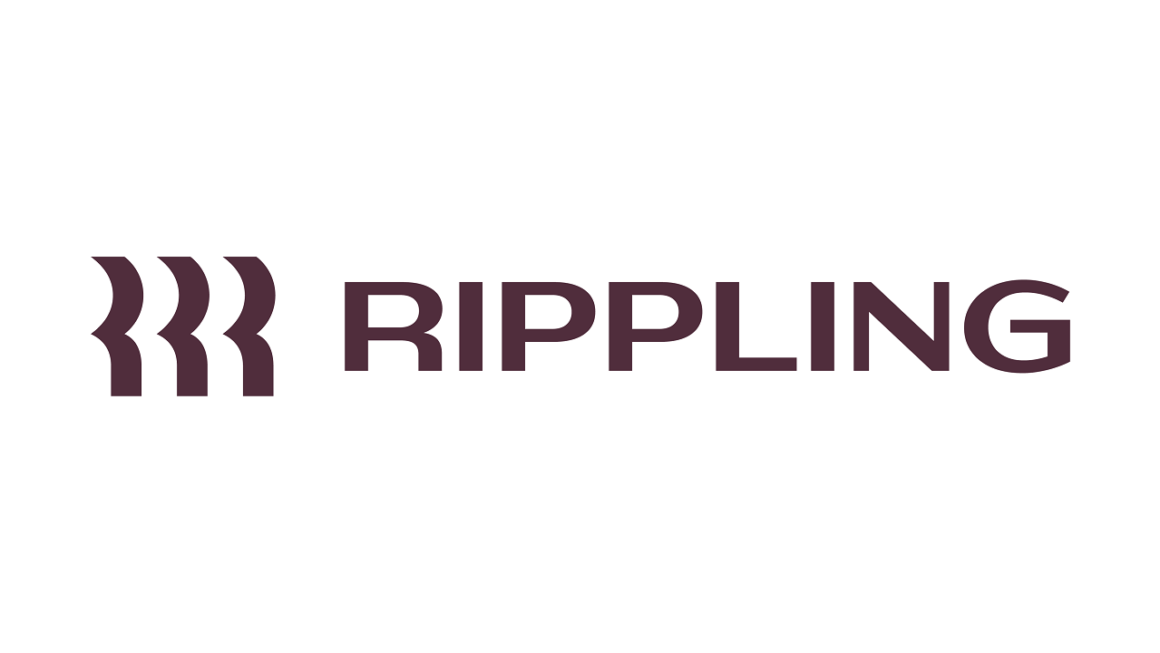Lyra Health is a mental health startup that provides evidence-based care to employees of companies of all sizes. The company offers a suite of services, including self-guided programs, mental health coaching, therapy, and medication management. Lyra’s services are delivered through a personalized, integrated platform that makes it easy for employees to find the right care for their needs.
Lyra was founded in 2015 by David Ebersman, former CFO of Facebook, and Dena Bravata, an accomplished healthcare industry veteran and physician,. The company is headquartered in Burlingame, California, and has raised over $900 million in funding. Lyra’s investors include Emerson Collective, Salesforce Ventures, and Coatue Management.
Lyra’s services are available to employees of over 2,000 companies, including eBay, Genentech, Uber, and VCA Animal Hospitals. The company has a team of over 1,000 employees, including licensed therapists, psychiatrists, and care navigators.
Lyra’s mission is to “make mental health care as accessible, effective, and affordable as possible.” The company believes that everyone deserves access to quality mental health care, regardless of their financial situation or where they live. Lyra is working to make this a reality by providing affordable, personalized care to employees of companies of all sizes.
Here are some of the key features of Lyra Health:
Personalized care: Lyra’s platform uses data and analytics to create a personalized care plan for each employee. This plan includes recommendations for self-guided programs, mental health coaching, therapy, and medication management.
Ease of use: Lyra’s platform is easy to use and navigate. Employees can access their care plan from anywhere, at any time.
Affordable: Lyra’s services are affordable for employees. The company offers a variety of pricing plans to fit the needs of different companies.
High-quality care: Lyra’s team of licensed therapists, psychiatrists, and care navigators are experts in mental health care. They are committed to providing high-quality care to employees.
Founding History of Lyra Health
Lyra Health has garnered attention and acclaim for its groundbreaking approach to addressing the growing mental health crisis. To truly appreciate the impact and vision behind Lyra Health, it is important to delve into its founding history.
The founding story of Lyra Health can be traced back to the early 2010s when David Ebersman, former CFO of Facebook, became acutely aware of the profound impact mental health challenges can have on individuals and their ability to function effectively in both personal and professional realms. Witnessing the silent struggles of colleagues and recognizing the limited access to quality mental health care, Ebersman recognized the urgent need for a transformative solution.

In 2015, Ebersman joined forces with Dena Bravata, an accomplished healthcare industry veteran and physician, to create Lyra Health. Combining Ebersman’s experience in scaling innovative technology solutions and Bravata’s deep understanding of the healthcare landscape, the duo brought together a powerful blend of expertise and vision. Their shared passion for making mental health care more accessible, effective, and personalized formed the bedrock of Lyra Health’s founding principles.
Lyra Health’s early success was buoyed by strategic partnerships and significant funding. The company partnered with leading academic institutions, health systems, and employers to gain insights into the prevailing gaps in mental health care. This collaborative approach allowed Lyra Health to build a strong foundation for its innovative solutions and gather valuable real-world data to drive evidence-based practices.
In subsequent years, Lyra Health attracted substantial investment from prominent venture capital firms and investors, enabling the company to scale its operations and further develop its technology platform. With the financial backing necessary to execute their ambitious vision, Lyra Health set out to revolutionize mental health care delivery.
At the core of Lyra Health’s founding philosophy lies a commitment to harnessing technology to bridge the gaps in mental health care. The company recognized the transformative potential of data-driven insights, machine learning algorithms, and predictive analytics in improving access to care, matching individuals with appropriate therapists, and optimizing treatment outcomes. This technology-driven approach sets Lyra Health apart from traditional models of mental health care delivery.
Recognizing the importance of clinical expertise, Lyra Health established partnerships with a network of licensed therapists, psychologists, and psychiatrists who shared their commitment to evidence-based practices. By carefully selecting providers who specialize in various mental health domains, Lyra Health ensured that individuals seeking care would be matched with highly qualified professionals tailored to their unique needs. This emphasis on clinical excellence forms the foundation of Lyra Health’s commitment to delivering high-quality care.
Understanding the influential role of employers in shaping the well-being of their workforce, Lyra Health actively sought partnerships with forward-thinking organizations. By working closely with employers, Lyra Health aims to create a culture of well-being within organizations, offering customized mental health programs, educational resources, and actionable insights. This collaborative approach fosters a supportive environment, reduces stigma, and encourages early intervention.
Business Model of Lyra Health
Lyra Health is a mental health technology company that offers comprehensive behavioral health solutions to individuals, employers, and health plans. The company’s business model revolves around addressing the growing need for mental health support and improving access to quality care. Here’s a detailed explanation of Lyra Health’s business model:
Per-Member-Per-Month (PMPM) Pricing : Lyra Health’s revenue model is based on partnerships with employers and health plans. They typically offer their services through a subscription-based pricing model. The fees are often negotiated on a per-member-per-month (PMPM) basis, where the employer or health plan pays a set fee for each covered individual. This revenue model allows Lyra Health to scale its services and expand its network of providers while delivering consistent care to its users.
Target Market: Lyra Health primarily targets three main customer segments:
a. Employers: Lyra Health collaborates with employers to provide mental health services to their employees. This partnership helps employers support the mental well-being of their workforce, enhance productivity, and reduce healthcare costs associated with mental health issues.
b. Health Plans: Lyra Health partners with health insurance providers to integrate mental health services into their benefit offerings. This collaboration enables health plans to expand their coverage and provide members with access to a comprehensive network of mental health providers.
c. Individuals: Lyra Health offers its services directly to individuals seeking mental health support. These individuals can access Lyra’s network of licensed therapists and psychiatrists through the company’s platform or mobile app.
Comprehensive Mental Health Solutions: Lyra Health’s business model is built around delivering a wide range of mental health services and solutions. These include:
a. Network of Providers: Lyra Health has established a vast network of licensed therapists, counselors, and psychiatrists. These providers undergo a rigorous vetting process to ensure their qualifications and expertise.
b. Care Navigation: Lyra Health assigns each user a personalized care team that includes a care manager. These care managers help individuals navigate the mental health system, find appropriate providers, and coordinate their care.
c. Teletherapy and In-Person Care: Lyra Health offers both virtual teletherapy and in-person therapy options. This flexibility allows users to access care in a way that suits their preferences and needs.
d. Digital Tools and Resources: Lyra Health provides digital tools and resources to support mental well-being. These include self-help resources, educational materials, and interactive exercises accessible through their platform.
Outcome-Driven Approach: Lyra Health’s business model is focused on achieving positive outcomes for its users. They emphasize evidence-based care and continuously measure treatment progress to ensure effectiveness. By using data analytics and machine learning, they can identify patterns and insights to improve treatment plans and overall outcomes.
Technology Platform: Lyra Health’s business model heavily relies on its technology platform, which serves as the backbone of its services. The platform enables users to easily access mental health providers, schedule appointments, communicate securely with their care team, and track their progress. It also facilitates data analytics and insights to inform personalized care plans.
Overall, Lyra Health’s business model aims to address the mental health crisis by providing comprehensive and accessible mental health solutions. Through partnerships with employers and health plans, they offer a broad range of services, personalized care, and data-driven outcomes to improve mental well-being for individuals and reduce healthcare costs for their partners.
Revenue Streams of Lyra Health
Lyra Health generates revenue through multiple streams. Here’s a detailed explanation of the revenue streams of Lyra Health:
Employer and Health Plan Partnerships: Lyra Health forms partnerships with employers and health plans to offer its mental health services to their employees or members. These partnerships typically involve a negotiated fee structure based on a per-member-per-month (PMPM) model. Under this model, the employer or health plan pays a set fee for each covered individual, providing access to Lyra Health’s network of mental health providers and services. The fees may vary depending on the size of the population covered and the scope of services provided.
Subscription Fees: Lyra Health charges subscription fees to employers and health plans for access to its comprehensive mental health platform and services. The fees are often based on the number of covered lives or employees enrolled in the program. The subscription fees cover the utilization of Lyra Health’s technology platform, care navigation services, personalized care teams, and access to their network of providers.
Direct-to-Consumer Services: Lyra Health also offers its services directly to individuals seeking mental health support. In this case, users can access Lyra Health’s platform or mobile app to connect with licensed therapists and psychiatrists. The company charges users directly for these services, which may include virtual teletherapy sessions, self-help resources, and other digital tools. The pricing structure for direct-to-consumer services may vary, with options such as pay-per-session or subscription-based models.
Data Analytics and Insights: Lyra Health leverages data analytics and insights derived from its platform to offer additional value to its employer and health plan partners. By analyzing anonymized and aggregated data, Lyra Health can provide insights and recommendations to its partners to enhance mental health programs and optimize care delivery. These data analytics services may generate additional revenue streams through consultation fees or data-driven program enhancements.
The revenue generated from these various streams allows Lyra Health to sustain its operations, invest in technology advancements, expand its provider network, and continue improving access to quality mental health care.
Valuation, Funding and Investors of Lyra Health
Here is an explanation of the valuation, funding, and investors of Lyra Health:
Valuation: Lyra Health is a privately held company, so its valuation is not publicly available. However, in 2022, the company raised $235 million in funding, which valued the company at over $5.5 billion. This makes Lyra one of the most valuable mental health startups in the world.
Funding: Lyra Health has raised a total of $910.1 million in funding over 8 rounds. The company’s most recent funding round was a Series F round in January 2022, led by Dragoneer Investment Group. Other investors in Lyra Health include Greylock Partners, Venrock, Emerson Collective, and Salesforce Ventures.
Investors: Lyra Health’s investors are a group of leading venture capital firms and organizations that are committed to improving access to mental health care. These investors include:
-
- Greylock Partners
- Venrock
- Emerson Collective
- Salesforce Ventures
- Casdin Capital
- Providence Ventures
- Glynn Capital Management
- Crown Venture Fund
Lyra Health’s valuation, funding, and investors are a testament to the company’s success and its potential to continue to grow in the future. The company is well-positioned to become a leading provider of mental health care for employees, and its platform is helping to improve access to effective, high-quality care.
Here are some additional details about Lyra Health’s funding rounds:
- Series A: $35 million raised in December 2015
- Series B: $45 million raised in May 2018
- Series C: $75 million raised in March 2020
- Series D: $110 million raised in August 2020
- Series E: $187 million raised in Jan 2021
- Series F: $235 million raised in January 2022
Lyra Health’s funding rounds have been well-received by investors, and the company has been able to raise significant amounts of capital in each round. This is a sign of the company’s strong potential and the confidence that investors have in its future success.
Also Read: Hinge Health – History, Founders, Business Model & Funding
To read more content like this, subscribe to our newsletter



